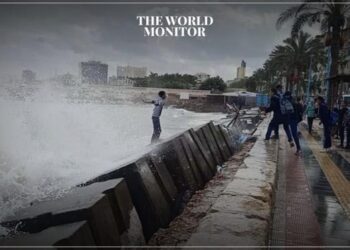Sudan is embroiled in an acute fuel crisis, particularly in its capital, Khartoum, due to persistent conflicts between the army and the Rapid Support Forces (RSF) that have been underway for months. This comes alongside a significant spike in black market fuel prices. Earlier this year, the Ministry of Energy and Oil completed the installation of fuel pipelines from the “Al-Jeili” refinery north of Khartoum to the state of Al-Jazeera, which serves the area with fuel.
RSF forces have controlled the Al-Jeili refinery since mid-April, deploying troops around the facility. The army has avoided direct military engagement near the refinery to prevent its destruction.
Residents of Tuti Island in central Khartoum are experiencing dire humanitarian conditions due to a 24-day power outage and a complete depletion of daily necessities and medicines.
Earlier, Abdel Fattah al-Burhan, the head of Sudan’s Sovereign Council, warned of the risk of Sudan’s disintegration due to war. Military sources reported that RSF forces are deploying drones to target the army’s headquarters in South Darfur.
Al-Burhan stated that the army faces a war that could shatter Sudan and compromise its unity. He also pointed out that what he termed “rogue terrorist forces” have targeted Sudanese people and jeopardized their security and lives.
UN Secretary-General António Guterres said RSF has set up bases in residential areas, warning that the unity of the Sudanese state and regional stability are at risk, adding that it’s time to disarm.
Sudan has been grappling with multiple crises, including political turmoil and economic instability. The military, which is one of the primary actors in Sudan’s political landscape, has been clashing with paramilitary forces, exacerbating the existing conditions.
The fuel crisis and ongoing power outages have further deteriorated the living conditions for residents, prompting international concern. Aid organizations have emphasized the need for urgent humanitarian assistance, particularly as essential services like healthcare are severely impacted.
Recent warnings from both national and international leaders have heightened the sense of urgency. The complex relationship between the military and paramilitary forces has not only led to resource constraints but also threatens the very unity and stability of the country. The UN’s warning points to broader regional implications, making it a matter of international importance.
These crises come against a backdrop of longstanding issues in Sudan, including civil unrest, conflicts, and human rights violations. The international community watches keenly as the crises unfold, with the hope that diplomatic interventions can stave off a total collapse of the already fragile state.






